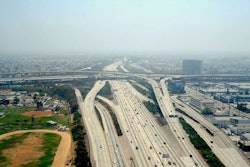After President Barack Obama made a brief mention of infrastructure funding in his State of the Union address last week, urging Congress to focus on that rather than the Keystone XL pipeline, Vice President Joe Biden has now made his own appeal to lawmakers to fund a long-term highway bill this year.
According to a report from The Hill, Biden said infrastructure funding could be increased through reforms to the federal government’s corporate tax code while addressing the U.S. Conference of Mayors in Washington D.C.
“Reform the tax code; increase productivity in the process and pay for it by investing in the very things that will generate more productivity, business and enterprise, without raising the deficit, paying it all,” Biden said. “…But the problem is now a lot of corporations pay at 35 percent and a lot pay at zero.”
“If you go in and get rid of these tax expenditures of no productivity, put everybody in corporate America on the same field, manufacturers as well as others, you know what the result of that is without raising [the federal deficit]?” he continued. “That generates over $100 billion just by eliminating those things and bringing the rate down.”
Neither Obama or Biden have made mention of increasing the gas tax, the primary source of infrastructure funding for the federal government. The tax on gasoline and diesel raise more than $30 billion each year but have been far from sufficient in meeting funding needs as Americans buy less and less fuel due to cars being more fuel efficient than ever.
The tax hasn’t been increased since 1993, despite an apparent approval of such a move by a majority of Americans in various polls. And with gas prices continuing to drop, the increase would be even more palatable. Despite this, Republicans have vowed to knock down any legislation aimed at increasing the tax.
According to The Hill, the projected transportation funding shortfall for the foreseeable future is about $16 billion.









